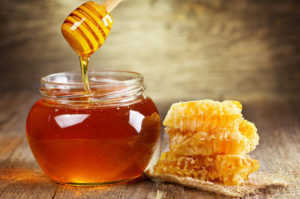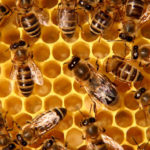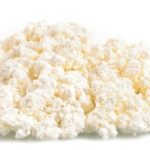25 interesting facts about honey
 A truly unique product of honey is the fact that it is not only great in taste, but also extremely healthy. It can be eaten fresh, added to drinks and desserts, used in the preparation of a variety of dishes … Fortunately, in our time you can buy honey almost anywhere. Workaholic bees tirelessly collect it so that we humans can enjoy this unforgettable taste.
A truly unique product of honey is the fact that it is not only great in taste, but also extremely healthy. It can be eaten fresh, added to drinks and desserts, used in the preparation of a variety of dishes … Fortunately, in our time you can buy honey almost anywhere. Workaholic bees tirelessly collect it so that we humans can enjoy this unforgettable taste.
It helps the body get rid of alcohol, so a little honey in case of a hangover will make you feel better.
In ancient Greece, honey was believed to contribute to longevity. Moreover, the ancient Greeks believed that the gods are immortal precisely because they eat special honey.
Judging by archaeological finds, ancient people ate honey in the 13th millennium BC. But then it was most likely appreciated for its taste and nutritiveness, since the useful properties of this product were discovered later.
China is the first in the world in terms of honey production.
Bees are also found in Africa, but they do not make honey, because there is no cold and hungry winter on this hot continent, and they do not need any reserves.
Honey made from pollen collected from poisonous flowers will also be poisonous to one degree or another.
This product has a pronounced anti-inflammatory effect. In addition, it helps with various diseases of the stomach.
Honey is widely used in cosmetology, and it is part of many different creams.
The largest bees in the world live in Nepal, high in the mountains. Locals, risking their lives, climb the most inaccessible cliffs to get their unique honey.
In order to collect 100 grams of honey, a bee would have to fly about 46 thousand kilometers, which exceeds the length of the earth’s equator.
Under the influence of heating, the beneficial substances contained in honey decompose. Therefore, putting it in very hot tea is almost useless.
Now in Siberia more honey is produced than in any other region of Russia. At the same time, industrial beekeeping began to develop there only in the 19th century.
Subject to a number of conditions, honey can be stored for centuries and even millennia. Clogged amphoras with honey were found in the graves of some ancient Egyptian pharaohs, and it was found to be suitable.
In Peru in 1985, vigilant police detained a large consignment of honey from Ecuador, in which a high cocaine content was discovered. As it turned out, the Ecuadorian drug lords released bees into coca fields to get what they needed and to discreetly transport them across the border.
The term “honeymoon” came from Norway, where, according to one old tradition, newlyweds must either eat it or drink honey drinks every day after the wedding.
The composition of honey includes more than 300 different nutrients.
Excessive consumption of honey can harm tooth enamel. In addition, it is contraindicated for people suffering from diabetes and certain allergies.
Since there is a lot of high-quality honey, it is often diluted, and everything is used, from water and flour to starch and vegetable glue.
Honey is absorbed by the human body by almost 100%.
The most expensive honey in the world is Life Mel, produced in Israel.
By nutrition, honey is twice as inferior to nuts, but it is almost twice as superior to meat.
The average bee hive, in which several thousand of these insects live, collects from 20 to 45 kg of honey per year, depending on the terrain, weather and other factors.
Honey is a powerful natural preservative. Even in antiquity they smeared meat with them to extend the shelf life of the latter.
It was part of a special substance used to embalm ancient Egyptian mummies.
The body of Alexander of Macedon, who died in one of the military campaigns, was immersed in honey to stop decomposition, and delivered home.



























